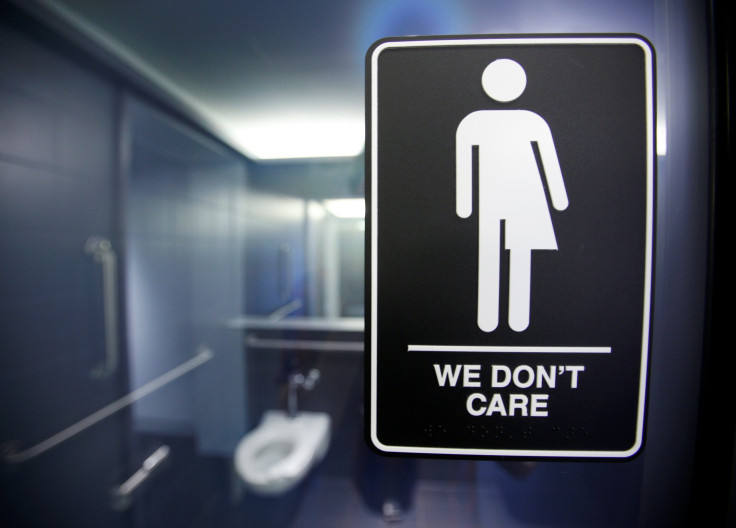North Carolina’s HB 2 Violates Federal Civil Rights Law, Justice Department Says: Report

The U.S. Justice Department has found that North Carolina's controversial House Bill 2 violates federal law, the Charlotte Observer reported exclusively Wednesday. The Associated Press confirmed the news shortly afterward.
The bill, also known as HB 2, flew through the state legislature during a single day in March and rolled back protections for lesbian, gay, bisexual and transgender people, in part forcing them to use public restrooms that align with their biological sex rather than their gender identity. But the Justice Department reportedly sent a letter to state officials saying it goes against Title IX of the Civil Rights Act, which forbids sex-based discrimination by any educational program that receives federal funding, as well as Title VII, which prohibits employers from discriminating on similar grounds.
"Access to sex-segregated restrooms and other workplace facilities consistent with gender identity is a term, condition or privilege of employment," the letter read. "Denying such access to transgender individuals, whose gender identity is different from their gender assigned at birth, while affording it to similarly situated non-transgender employees, violates Title VII."
The letter told North Carolina Gov. Pat McCrory he needed to handle the issue by Monday “by confirming that the state will not comply with or implement HB 2,” the Observer reported. Read the letter in full here on WRAL's website.
Letter from Justice Dept. To NC saying #hb2 violates Title IV. #ncpol #ncga pic.twitter.com/glXAeFHggo
— Loretta Boniti (@BonitiTWCNews) May 4, 2016
Justice Department: #HB2 violates federal Civil Rights Act #ncpol #ncga https://t.co/etqrsb8RCe pic.twitter.com/BsVECGOo7Z
— newsobserver.com (@newsobserver) May 4, 2016
The Justice Department had not confirmed the news on its press page as of Wednesday afternoon.
But the White House has said in recent years that Title IX should cover transgender children, writing in a 2014 memo that "all students, including transgender students and students who do not conform to sex stereotypes, are protected from sex-based discrimination under Title IX." The U.S. Equal Employment Opportunity Commission posted an LGBT fact sheet Monday clarifying that "gender-based stereotypes, perceptions or comfort level must not interfere with the ability of any employee to work free from discrimination, including harassment."
Justice Department letter only addresses transgender issues, does not assert that HB2 violates LGB rights under Title VII.
— Chris Geidner (@chrisgeidner) May 4, 2016
© Copyright IBTimes 2024. All rights reserved.






















